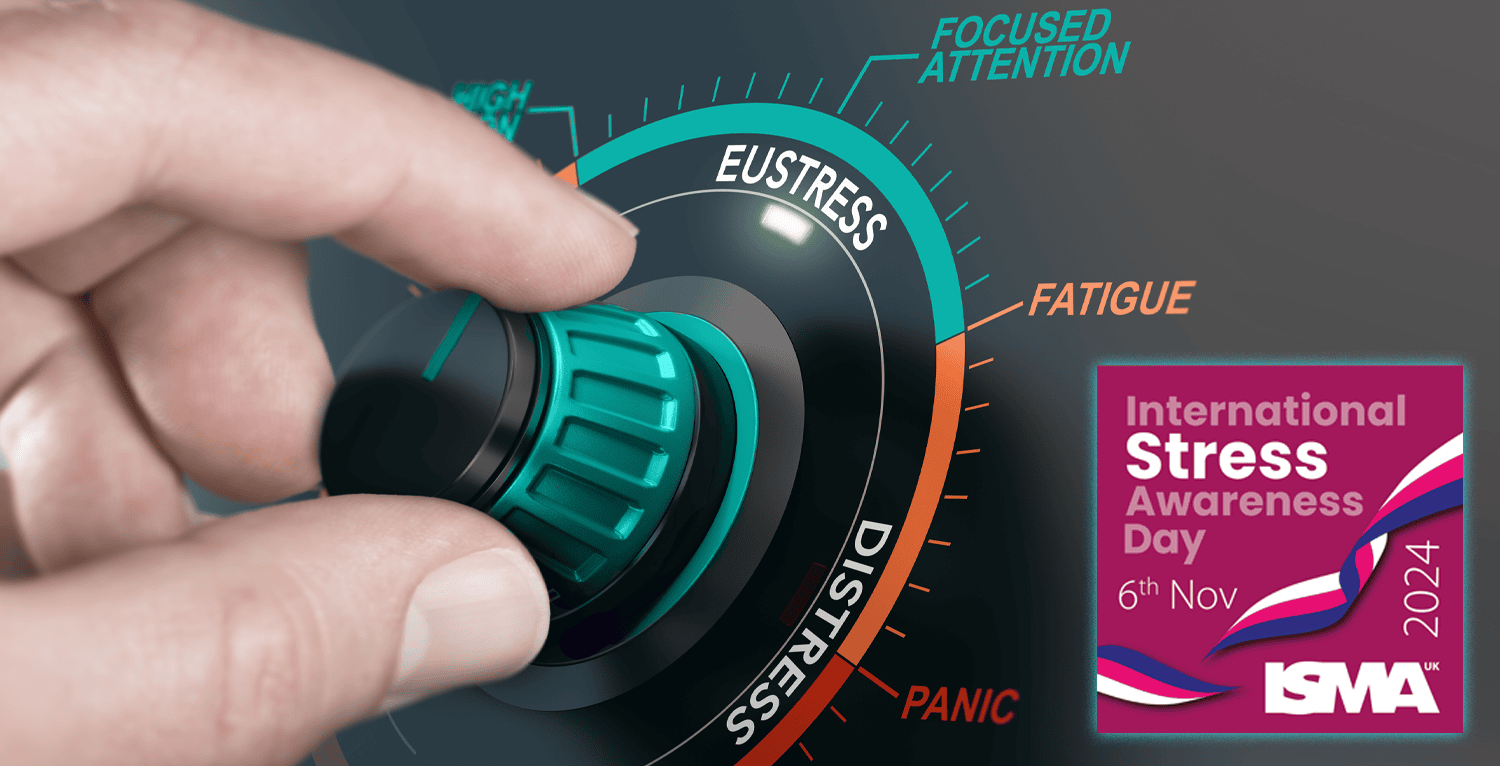Menu

Can Stress Be Used as a Force for Good in the Workplace?
Employers spend a lot of time creating and implementing strategies to help manage and mitigate stress in the workplace. After all, excessive stress can lead to health issues, lower productivity, and increase the risk of burnout. But not all stress is ‘bad stress’.
Psychologists actually separate stress into two distinct categories: eustress and distress. While distress is the harmful type that leads to all of the outcomes listed above, eustress is known as ‘positive stress’ – this is the stress that enhances motivation, focus, and even wellbeing. Eustress acts as a powerful tool for driving personal growth and resilience, helping employees to thrive in challenging situations (which, let’s face it, are going to sometimes be unavoidable at work).
The point is, stress isn’t always a bad thing, despite its negative connotations. When we feel stressed about something, it’s often a signal that it truly matters to us—that we care deeply about the outcome. This awareness can sometimes provide the extra push and motivation we need to take action and achieve our goals.
Creating a workplace environment where stress serves as a motivator rather than a burden requires a delicate balance. The goal should be to empower employees to handle manageable challenges without crossing into the territory of excessive pressure. There are a few ways employers can do this:
- Culture of Purpose – when employees feel a sense of purpose in their work, moderate stress becomes easier to manage and even desirable. This sense of purpose can transform potentially stressful situations into positive experiences that foster engagement and long-term job satisfaction. Employers therefore have to make an active effort to help employees understand how their work contributes to the bigger picture of the organization’s goals.
- Sense of Control – when people have control over how they manage stressors, stress becomes less overwhelming. This is linked to the psychological concept of perceived control, which is the perception that one has the ability, resources, or opportunities to achieve positive outcomes or avoid negative effects through one’s own actions. Studies have shown associations with perceived control and the management of stress, so those employers who are giving their employees a say in their workload, deadlines, or how they tackle projects are more likely to foster positive stress that fuels performance.
- Recognition and Reward – if employees feel that their hard work is acknowledged, the stress they endure can become meaningful – even enjoyable – as it’s directly linked to recognition and reward. This positive reinforcement reassures employees that their efforts are appreciated, helping them associate stress with growth and achievement rather than struggle. It’s therefore imperative for employers to have recognition programs in place that highlight not only successes but also the hard work and effort that lead to their success.
- Supportive Environment – a supportive environment is crucial when turning stress into a positive motivator. This is why it’s important for staff to know that they can rely on their teams for support and guidance, as this results in stress becoming more of a shared experience rather than an individual burden to bear. Encouraging team building activities and creating opportunities for collaboration can aid in fostering this supportive environment where stress can remain moderate and positive.
Everything is okay in moderation – even stress. Eustress can be a powerful motivator that helps employees reach new heights of performance, but the challenge is creating a work environment where this stress is stimulating rather than overwhelming. If you would like to discuss how we can help you harness the power of positive stress, please get in touch with me at karen.cerrato@orgshakers.com, contact us through our website, or book in a 1-hour consultation with one of our seasoned HR professionals for instant advice through our OrgShakers CL!CK consultation service.



